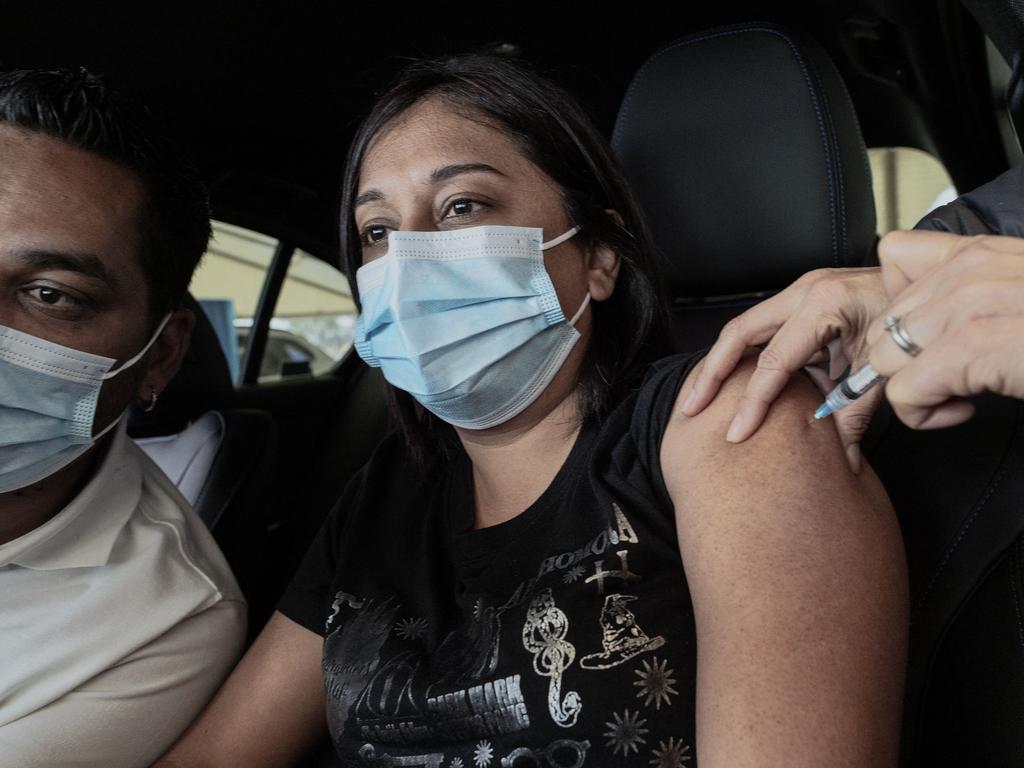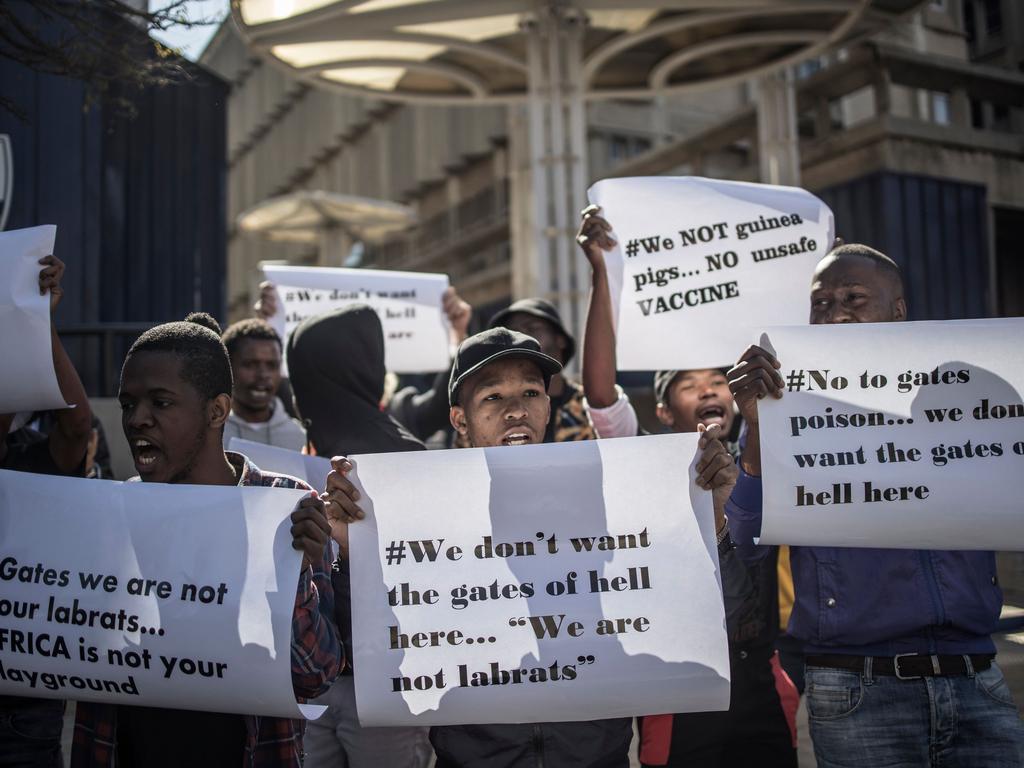Experts blame vaccine ‘inequity’ for emergence of Omicron Covid-19 variant
The emergence of the Omicron variant was made more likely by vaccine “inequity” and hesitancy, some experts claim.
The emergence of the Omicron variant was made more likely by vaccine “inequity” and hesitancy, some experts claim.
The new Covid-19 strain, which has very mild symptoms and no reported deaths to date, was first identified in South Africa and has now been detected in countries including Australia, the UK, Germany, Italy, Belgium and Botswana.
On Friday, the World Health Organisation renamed the B.1.1.529 strain “Omicron” and declared it a “variant of concern”, amid fears it is resistant to vaccines.
While it’s not clear whether Omicron originated in South Africa or was brought into the country from elsewhere, some scientists say the virus is more likely to mutate in places where vaccination is low and transmission is high.
Only 24 per cent of South Africa’s population is fully vaccinated.
The eight African countries hit with travel bans as a result of the new variant – South Africa, Botswana, Zimbabwe, Namibia, Lesotho, Eswatini, Mozambique and Malawi – all have low vaccination rates, with Malawi the lowest at just 3.1 per cent.

Michael Head, a senior research fellow in global health at the University of Southampton, told CNN Omicron probably emerged in another country before being detected in South Africa.
“It might well be a consequence of an outbreak, probably in some parts of sub-Saharan Africa, where there’s not a huge amount of genomic surveillance going on and vaccination rate is low,” he said.
Dr Head said new variants were “a natural consequence of being too slow to vaccinate the world”.
“We still have large unvaccinated populations, like we have across sub-Saharan Africa, and these are susceptible to big outbreaks,” he told CNN.
He said vaccine hesitancy combined with lack of access were behind the lower vaccination rates.
The World Health Organisation has criticised wealthy nations for the “self defeating” and “immoral” practice of hoarding Covid-19 vaccines and failing to deliver on promises to share doses with the developing world.
According to the WHO, only 7.5 per cent of people in low-income countries have received at least one dose of a coronavirus vaccine, compared with 63.9 per cent of people in high-income countries.
The WHO had set a target for all countries to vaccinate 10 per cent of their populations by the end of September, but 56 countries were unable to meet this target, most of them in Africa.
“Even more countries are at risk of missing the WHO targets of vaccinating 40 per cent of the population of every country by the end of this year, and 70 per cent by the middle of next year,” the WHO says.

The WHO says the only way to achieve these targets is for the countries and companies that control vaccine supply to put contracts for the multilateral COVAX initiative and the African Vaccine Acquisition Trust.
Australia has pledged to donate 60 million vaccine doses, making it among the most generous countries per capita.
But the government has largely ignored the COVAX initiative in favour of bilateral agreements with countries in Southeast Asia and the Pacific, in what critics describe as “vaccine diplomacy”, influenced more by geopolitical motivations.
“Australia’s approach puts it out of step with other major global donors,” write the Lowy Institute’s Alyssa Leng and Roland Rajah.
“The only other major donor displaying a similar pattern of bilateral vaccine diplomacy is China – which shares none of its vaccine doses via COVAX and has contributed relatively little financially to the facility.”
And it has been slow to deliver on its promises.
“To date, Australia has delivered just 8 per cent (4.9 million doses) of its promised donations – an unnecessarily low number given many millions of AstraZeneca doses have gone unused in Australia due to concerns about rare blood clotting risks,” they note.
Jeremy Farrar, director of UK health charity the Wellcome Trust, said new variants were “a reminder if we needed it that the pandemic is far from over, inequity is what will extend the pandemic”.
“We do need to do inclusive public health better including urgent equitable access to vaccines and all the tools needed (to) stop (the) pandemic,” he wrote on Twitter.






